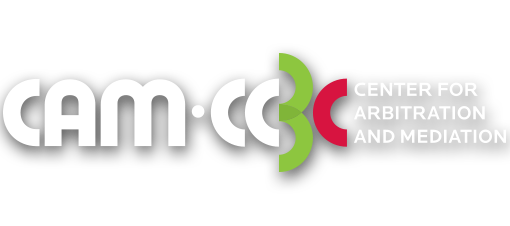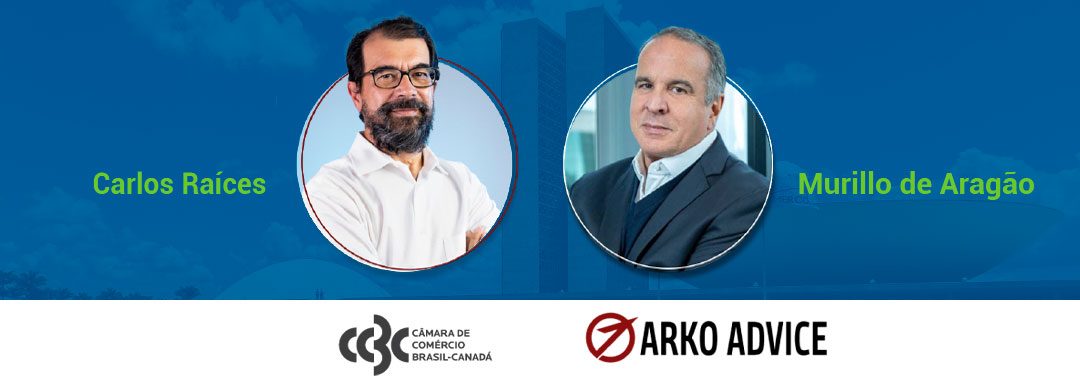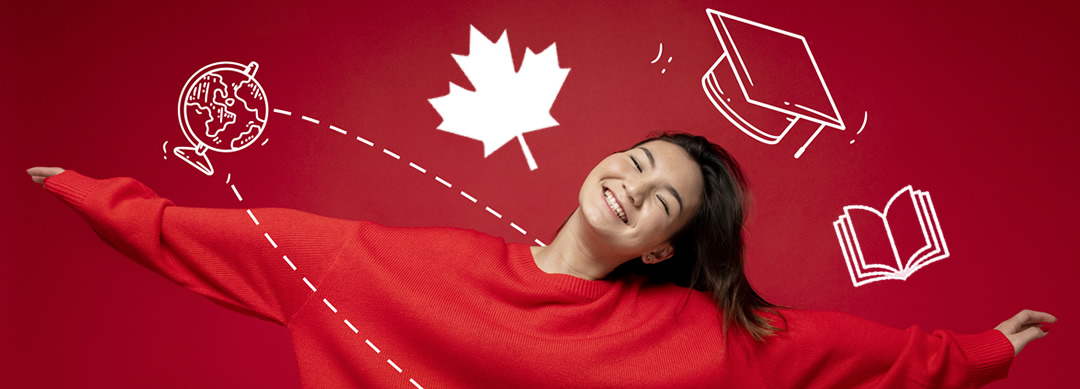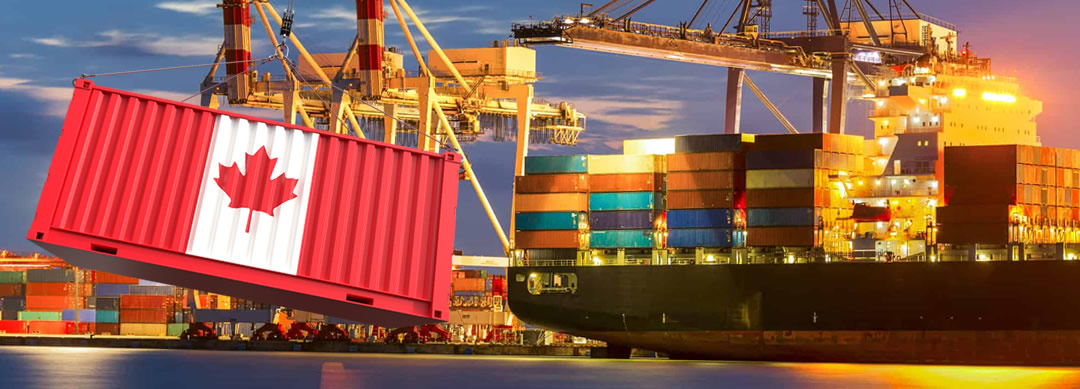Professor and political scientist Murillo de Aragão shares with CCBC members his perspectives for Brazilian politics and economy, and for the post-Covid recovery
By Sérgio Siscaro
The current moment experienced by Brazil generates a series of uncertainties about the country’s ability to resume economic growth in the future. In addition to the health crisis brought on by the Covid-19 pandemic, with its impacts on economic activity, there is the continued decline in the level of economic activity and the difficulties brought on by the political crisis. “The tunnel is quite long, but there is light at the end”, ponders political scientist Murillo de Aragão, who exposed his points of view about the Brazilian political and economic conjuncture in the webinar Cenários políticos e perspectivas para o Brasil (Political scenarios and perspectives for Brazil), promoted by the Chamber of Commerce Brazil-Canada (CCBC), on April 15. On the occasion, he answered questions from journalist Carlos Raíces, and CCBC members, who attended the event.
Aragão is currently the president of the consulting firm Arko Advice and has a long history as a political commentator, lawyer, and professor. He is the author of the books Grupos de Pressão no Congresso Nacional (Pressure Groups in the National Congress) (1992), Reforma Política: O Debate Inadiável (Political Reform: The Urgent Debate) (2014), Parem as Maquinas (Stop the Machines) (2017), and Ano Zero: Reflexões sobre a Política e a Economia no Pós-Pandemia (Year Zero: Reflections on Politics and Economics in the Post-Pandemic) (2020) – the latter written at the time the pandemic was arriving in the country. “At the time I was already dealing with the subject in my column for Veja magazine. What we saw was that Brazil went to the ‘Covid war’, in the same way that France went to World War II: disorganized, without conviction, and with an incomplete prescription to face a problem that had health, social, and economic dimensions”, he said.
In his opinion, the country failed in taking advantage of the crisis, brought by the new coronavirus, and in dealing with essential issues, such as basic sanitation, urbanization of communities, and the expansion of job offers. “We could have done as the United States did during the New Deal [a reform program carried out in the 1930s]. But there was complete disorganization and irresponsibility. Brazil, as a whole, made a lot of mistakes”, he evaluated.
However, even in the face of this scenario Aragão believes that once overcoming the current health crisis Brazil will have objective conditions to resume growth, based on the trends that have been crystallizing. “One of the positive aspects that we can expect is the performance of the financial system. We have seen the increase in the number of investors in the capital market, which is a result of the monetary policy that has been adopted, and which should not be reversed. Besides this, there is room to double the amount of housing credit in the country. The governance carried by the Central Bank has also been a positive aspect”, said Aragão, while also adding the opportunities in infrastructure and the agricultural sector.
Scenarios for 2022
Aragão also addressed the possibilities open by the upcoming presidential elections, which would have the current president Jair Bolsonaro (no party) and former president Luiz Inácio Lula da Silva (PT) as the main candidates. “The scenario is still open on account of the uncertainty regarding the effects of the pandemic on the economy, in the second half of the year. This performance does not refer only to the growth rate of the Gross Domestic Product (GDP), but also to the speed of this recovery, and to the ‘thermal sensation’ it will cause in society”.
He points out, however, that next year’s presidential election will be quite different from that of 2018, which had as a “new fact” the escalation of revelations arising from the activities of Operation Lava-Jato. “In 2022, the most important fact will be the pandemic and the possible political damage caused by the Covid CPI (Parliamentary Committee of Inquiry). Bolsonaro has a great capacity for resilience and if the situation moves towards an improvement, he can consolidate his position and have conditions to contest the second round of presidential elections”, he said.
Aragão also spoke to the participants about the roles of the Centrão (group of parties that declare themselves to have a “center” political position) and the military in the Bolsonaro government. “The president’s political inability led to the impasse with Congress, and then he decided to negotiate with the political parties and change his previously critical attitude towards the Centrão. He is not yet being tutored by the Centrão but is allied with the group. However, if his popularity drops, the Centrão may demand greater tutelage from the government, more space, and, perhaps, abandon Bolsonaro. Regarding the Armed Forces, the political scientist rules out any attempt to control the Executive. “The military is the institution that most conceived Brazil throughout the 20th century. I see no risk of [institutional] rupture”.
International Relations
Aragão sees the relations between Brazil and Canada as quite positive. “We have already had trade disputes, but this has been resolved, and today the relations between the two countries take place at various levels. They are highly positive relations, of trust, and of investments, both Canadian in Brazil and Brazilian in Canada”, he evaluated. He also considered Brazil’s relations with the United States positive, despite “a certain tension on the surface”.
In relation to environment protection, whose conduction by the Brazilian government has been the target of severe international criticism, the president of Arko emphasized that, unlike the United States, Brazil has never broken with multilateral organizations. “Brazil will have a cooperative posture in these forums, more aligned with what it had in the past, although not exactly the same. As for the erosion of the country’s image abroad, I do not see an improvement in the short term; other countries will continue to use the environmental issue to criticize Brazil, as is the case of France”.
In Aragão’s opinion, Brazil’s entry into the Organization for Economic Cooperation and Development (OECD) is a matter of time. “The world today is experiencing a trend of valuing compliance-related aspects. For Brazil, following OECD rules would constitute an important [competitive] differential. I believe that, whichever candidate wins the 2022 presidential elections, the country’s entry into the OECD will remain on the horizon”, he said.
The webinar is available on CCBC’s YouTube channel.





